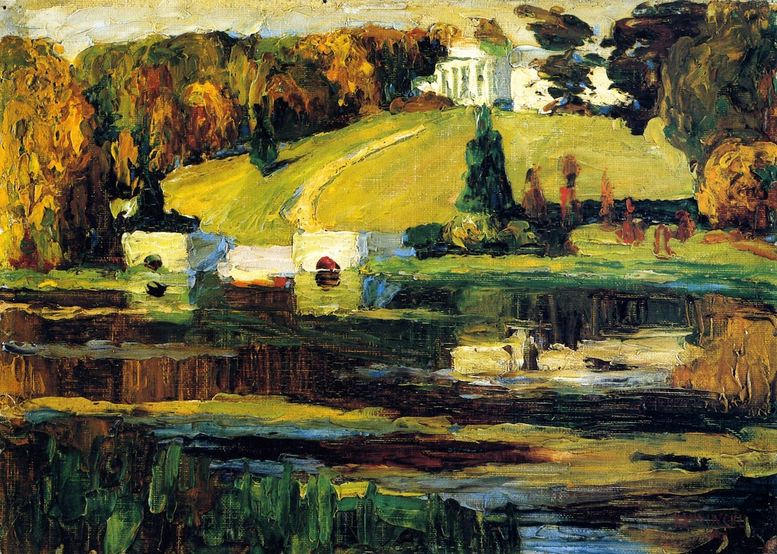Self-Knowledge • Growth & Maturity
What Should My Life Have Been Like?
There are two interlinked priorities for anyone who is suffering because of an unfortunate traumatic childhood.
Firstly, they must work out what went wrong. This isn’t as easy as it sounds. The mind invests hugely in repressing pain — in the name of moving forward. But it does so — as we know — at great long-term cost (we develop neuroses of all sorts). That’s why we must fight the internal forces of forgetting by asking ourselves questions like: How were we damaged? Who hurt us? And how? This can be the work of years.

But once we have spent adequate time on this, a second task is there for us to take on. We can ask ourselves a perhaps peculiar sounding type of question: What should my life have been like? In particular, we might ask, in rather a lot of detail: What might a really good father have been like? And/or: What would I have ideally wanted my mother to be?
We are so ingrained to work with what we have, the exercise may sound profoundly futile. As we can’t change the past, why ruminate on how it might have been different? But that’s to overlook that much of what is missing can be substantially recovered through one of the most important faculties we have: our imaginations. These imaginations, which can build 600 page novels and design airliners and construct political theories can also, when set to work, conjure up in quite a lot of detail how our earlier lives should have been.
And the more it does so, the more — oddly but sincerely — we can actually end up benefiting from imaginative contact with the better scenarios, to an extent as if we had actually lived them. The good experiences of the imagination can be absorbed into our minds as if they had been enjoyed in reality and can deliver nourishment and comfort accordingly.
We could think — for example — about what we would have wanted our parents to be like about our schoolwork. Or how they should have handled conflicts with our sibling. Or how a perfect weekend would have unfolded in their company when we were five. We could think about what we would have wanted them to look like and sound; what sort of clothes they should have worn or jobs they might have had. We could picture going on holiday with these ideal parents; we can think about how they might have teased us affectionately and how they would have responded the first time we went out on a date or brought home a friend. These ideal figures can, after a little while of us doing this, become as real for us as any character in a favourite novel — and can be loved and evoked and lived with in the mind as much as fictional people can (which is not saying nothing, for those of us for whom Madame Bovary or Holden Caulfield are as real as anyone we may have met in flesh and blood).
Let’s imagine a reverie about the father we would have wanted to have:
He would have been so encouraging, proud, seeing his younger self in me and that younger self being tolerable to him, kindly, reassuring, guiding me out of home into the world, showing me things. Reliable, preparing the way to adulthood, warmly jokey, showing boundaries but gently, without rage; modelling good adult behaviour, not perfect (that could have been oppressive), but a tolerable everyday kind of competence; reconciled to his own ageing, happy to hand over the baton eventually, resolved enough in himself sexually not to pass on contempt or paranoia…
Or let’s imagine a reverie about the sort of mother who could have helped us to realise our true potential:
She would have been extremely calm. It wouldn’t have mattered if sometimes I made a mistake. There would have been a jokey serene quality to her. She would have exuded an impression that she could take anything under her stride. Practical tasks wouldn’t have been a source of drama. In the evening, we’d have sat together reading or watching TV and I’d have looked over at her and admired her courage and self-possession.
How resourceful, and calm we might have grown if this had been our lot. The basement of our minds would have been well built and insulated, and everything that came later could have been so much hardier and more resilient. The hull of our ship would have been without those fragile patches prone to collapse in heavy seas. We wouldn’t have had pain free lives but we would have felt robust inside, we would have known how to meet our difficulties with skill. We wouldn’t have needed to feel so sad and so scared and so weak.

To reflect on what our lives should have been like is no meaningless escape from a horrid reality. It constitutes a bid to repair some of our damage through a process of positive contrast. When we are next in difficulties we should try to calm ourselves by returning in our minds to the better lives we should have had — while also knowing more clearly and compassionately that we are at present meeting adult life with bits of us missing, and so no wonder we are finding things harder than we might. We can slowly become a little stronger by summoning up the people we should always have known — and the emotional gifts they would have given us.


























